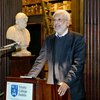Emotional Intelligence & Financial Systems
Webinar - Ireland
Never miss a recording again; click here subscribe to Z/Yen's YouTube account .
Charismatic people create new systems that sometimes work (Big Bang in the City) and other charismatic people can crash the markets and countries large and small. Charisma is exerted through facial expressions, tone of the voice, hand gestures and body movements. This wrapping of non-verbal signals together with pithy language makes markets move and sometimes crash. The recognition of non-verbal emotional expressions is one of the targets of the AI community especially in their quest of creating machines that can understand aspects of human behaviour. In particular, the quest is directed at finding the difference between emotions expressed in words and, say, the facial expressions accompanying the words or the wrong tone of voice - a kind of an advanced lie-detector test much beloved of the financial services and security services alike. Professor Khurshid Ahmad will describe his recent work on the examination of chief executive officers of major enterprises, banking regulators, and some politicians, to examine the performance of facial emotion expression, of head movements accompanying facial expressions, and the tone of the voice of these charismatic people.
Speaker:
Professor Khurshid Ahmad is the Professor of Computer Science in the School of Statistics and Computer Science, Trinity College Dublin. His research areas include artificial intelligence, neural networks, fuzzy logic, social media analytics and behavioural finance. He was trained as a nuclear physicist and has worked in high-performance computing covering areas such as forecasting, computer-assisted learning, engineering design, and information extraction from continuous information streams comprising texts, images and numbers. His work seeks to maximise the potential of computing systems by enabling these systems to deal with different modalities of human communications, language, vision, symbolic including numerical information exchange. He has designed and implemented systems that learn to deal with the different modalities of communications. His work has been supported by research councils, EU Programmes, and venture capital funds. He is a former Visiting Professor at Copenhagen Business School and the University of Surrey, and has worked with UN FAO and UNDP. He has published over 200 research papers and his work has appeared in journals in AI and in corporate finance. His latest book is on the topic of Social Computing and the Law (Cambridge University Press). He is a Fellow of the British Computer Society and of Trinity College, Dublin. He is a member of the Board of Trinity College Dublin.
Date
Wednesday, 28 September 2022
Time
11:00 - 11:45 BST
Cost
Free
Share this event on social media:
Speaker(s):
-
 Professor Khurshid Ahmad
Professor Khurshid Ahmad
Professor of Computer Science
Trinity College Dublin
Chairman:
-
 Charlotte Dawber‑Ashley
Charlotte Dawber‑Ashley
Manager, FS Club
Z/Yen Group
